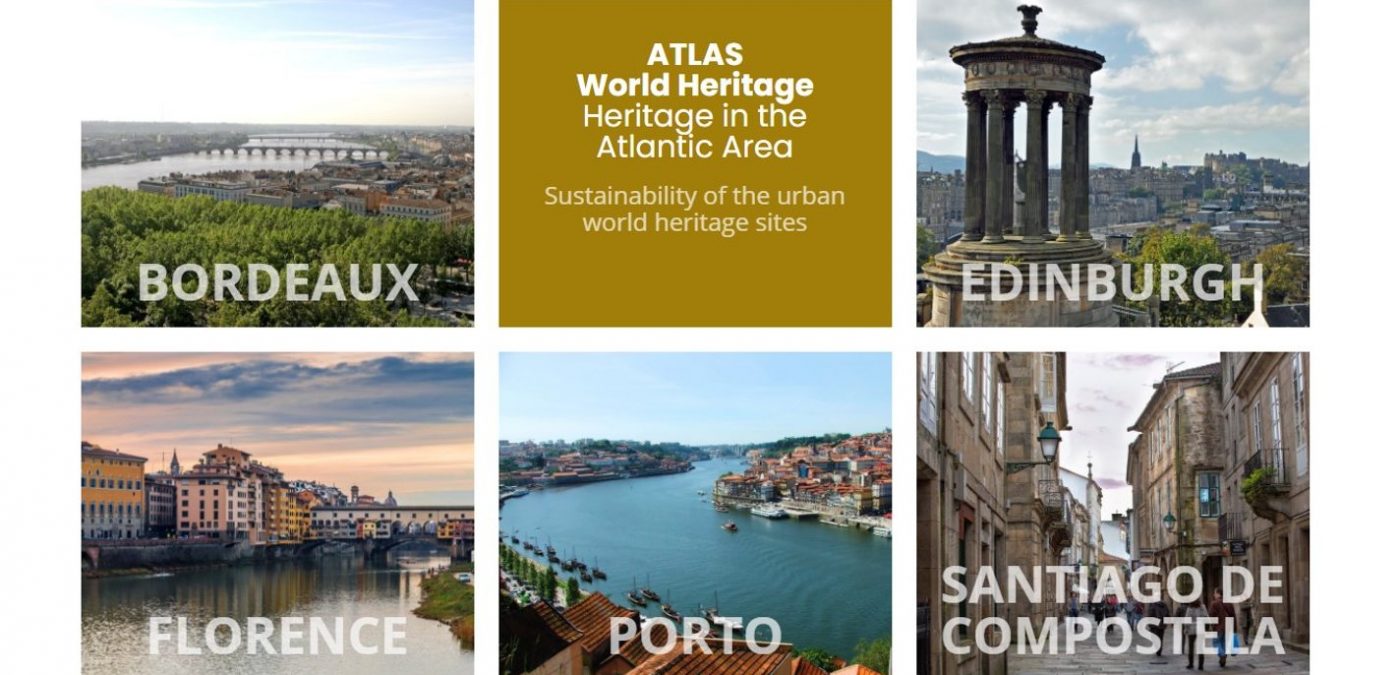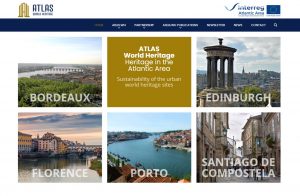10 December 2020
AtlaS.World Heritage – Heritage in the Atlantic Area. Sustainability of the Urban World Heritage Sites
Oporto, Portugal

AtlaS.World Heritage – Heritage in the Atlantic Area: Sustainability of the Urban World Heritage Sites
The project AtlaS.World Heritage – Heritage in the Atlantic Area: Sustainability of the Urban World Heritage Sites (AtlaS.WH), initiated in 2017, created a network of urban World Heritage Sites (WHS): Old and New Towns of Edinburgh; Historic Centre of Florence; the Historic Centre of Porto, Luiz I Bridge and Monastery of Serra do Pilar; Bordeaux, Port of the Moon; and Santiago de Compostela – Old Town. These last three partners are also members of the Organization of World Heritage Cities (OWHC).
Led by the Municipality of Porto and funded by INTERREG Atlantic Area (AA) Program – European Regional Development Fund, the main result will be the tailored sustainability plans of each WHS, by means of an integrated and participative management and monitoring model, based on the common know-how and best practices.
The AtlaS.WH – Heritage in the Atlantic Area focuses on finding global methodologies and solutions to addressing common challenges that affect Urban World Heritage Sites, namely by stimulating heritage-led economic and cultural development, following the conclusions of the “Diagnosis Study of Urban World Heritage Sites in the Atlantic Area”. You can find more about this document at http://www.atlaswh.eu/p413-studies-en
Another good example of transnational partnership is the document “The World Heritage Site experiences in managing Governance, Population and Tourism issues: Thematic Study on Common Challenges”, which analyses and collects international good practices for the mitigation of critical issues that are common to heritage sites: governance, tourism and population issues (find more at http://www.atlaswh.eu/p413-studies-en).

The “Methodology for the development of Management Plans for Urban World Heritage Sites” (http://www.atlaswh.eu/p413-studies-en), which is under Porto’s responsibility, aims to create a framework that allows all partners to address their common challenges in a uniform way, both at a strategic and operational levels, in other to establish the sustainability plans.
Also, there is an effort from the five partners in the project’s dissemination and capitalization, with local awareness-raising for schools.
The transnational partnership has been disseminating the results to the cities in the AA and beyond, which may be replicated and adapted.
You can find more about the project at http://www.atlaswh.eu or by subscribing the newsletter at http://www.atlaswh.eu/p430-newsletter-en


